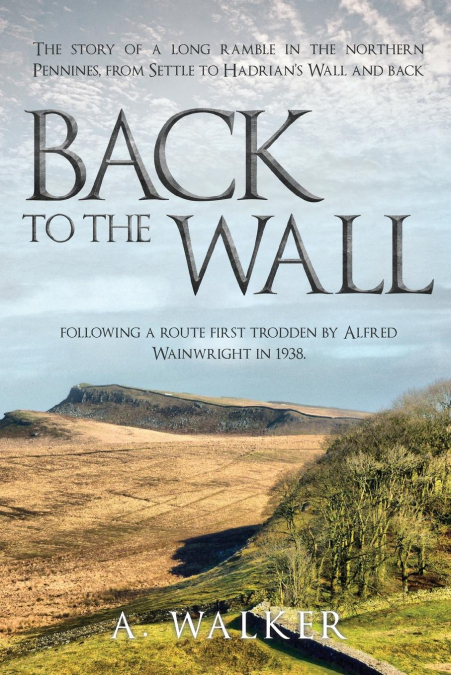
 Librería Perelló (Valencia)
Librería Perelló (Valencia)
 Librería Aciertas (Toledo)
Librería Aciertas (Toledo)
 El AlmaZen del Alquimista (Sevilla)
El AlmaZen del Alquimista (Sevilla)
 Librería Elías (Asturias)
Librería Elías (Asturias)
 Librería Kolima (Madrid)
Librería Kolima (Madrid)
 Donde los libros
Donde los libros
 Librería Proteo (Málaga)
Librería Proteo (Málaga)
In 1938, in the shadow of possible hostilities and long before he became renowned for his ‘pictorial guides’, Alfred Wainwright decided to go for a walk. This was not just any walk: he chose to walk over 200 miles from Settle to Hadrian’s Wall and back. He wrote an account of his trek, Pennine Journey, not as a guidebook but as a commentary on the life and folk of the Dales. In 1998, as close to the 60th anniversary as possible, A. Walker undertook the same walk and, like Wainwright, undertook the walk solo. The sense of being alone became cathartic and inspired this personal reflection. The account looks at life’s trials and tribulations through the medium of 11 days spent with his own thoughts, with no distractions to blunt the experience. The sense, from time to time, of having his back to the wall found a great medicine in following Wainwright back to the wall. Author: Yorkshire-born author A Walker’s writing centres around the earlier works of Alfred Wainwright, particularly his Pennine Journey, which he had undertaken in 1938. Walker retraced the route and found it became the inspiration for Back to the Wall, a personal reflection that uses the walk as a microcosm of life’s journey. Walker’s interpretation of his 1998 trek takes the form of a rambling account that compares and contrasts with Wainwright’s original book using his own views and opinions as the basis of a thought-provoking and amusing yarn. Walker also wrote his historically based guide to the walk published as In Wainwright’s Footsteps: The Pennine Journey